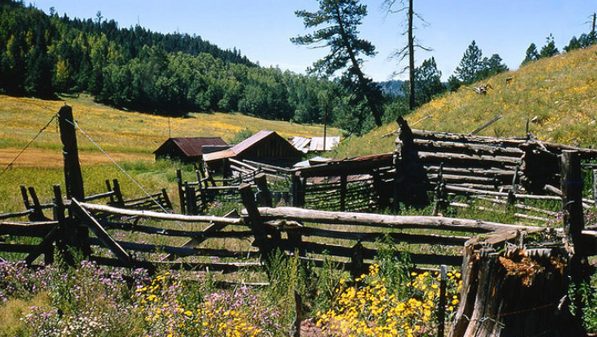SurvivalBlog presents another edition of The Survivalist’s Odds ‘n Sods. This column is a collection of news bits and pieces that are relevant to the modern survivalist and prepper from JWR. Our goal is to educate our readers, to help them to recognize emerging threats, and to be better prepared for both disasters and negative societal trends. You can’t mitigate a risk if you haven’t first identified a risk. In today’s column, we look at remote work, tools, and locales.
10 US Cities Offer Perks If You Move There
From the job search site Indeed: Craving a Location Change? These 10 US Cities Offer Perks If You Move There.
Working From Your RV: Making Working From the Road Your Reality
O.F. sent this: Working from Your RV: Everything You Need to Know About Making Working From the Road Your Reality.
50+ Companies That Let You Work From Anywhere
50+ fully remote companies that let you work from anywhere.
Off-Grid Living Is Expected to Put a Strain on Utilities
Posted back in February, over at Vision Monday: Off-Grid Living Is Expected to Put a Strain on Utilities. The article begins:
“More Americans are choosing to live off-grid, according to a report from StudyFind.org. The study found that 12 percent of American households will be off-grid by 2035. This is just slightly ahead of Europe, where it’s predicted the number will reach 11 percent.
The rise in people living off-grid is attributed to an increase in distributed energy resources and energy efficiency measures. The result could be a drop in utilities revenues of more than $48 billion in the U.S. and €61 billion euros across Europe by 2025.
A report from Accenture, a consulting firm, found that executives are particularly concerned about revenue streams, with 61 percent believing that revenue will fall as a result of green technology such as solar PV. This is an increase of 43 percent from the year before.”
Moving Off-Grid: My Ultimate Pandemic Project
An interesting profile, over at CNET: Moving Off-Grid: My Ultimate Pandemic Project Is About More Than Utility Bills.
10 Countries That Make It Really Easy to Work Remotely
At Afar: 10 Countries That Make It Really Easy to Work Remotely.
How is Remote Work Changing Real Estate?
Bankrate reports: 64% say they prefer to work remote: How is this changing real estate? Here is an excerpt:
“The COVID-19 pandemic reshaped the meaning of “home” for many American households. Once tethered to offices or other places of business, workers were suddenly working entirely from their homes amid pandemic social distancing requirements. This, in turn, caused many to start rethinking where they live.
Freed from having to stay within easy commuting distance to their place of employment, people began moving to places that suited them for other reasons. Some chose to relocate closer to family and friends, others opted for places that offered a more attractive climate or lifestyle. Still others moved to more rural, less densely populated areas in pursuit of more affordable housing.
All the reshuffling increased demand and contributed to a surge in home prices, leaving hopeful homebuyers faced with sticker shock. Bankrate’s April survey found that many prospective buyers were willing to make sacrifices to find affordable housing, including 37 percent who were willing to move to a different state to achieve their dream of homeownership.”
Amazon Tightens Exemption Policy
Many of Amazon’s remote workers face tough decision after tech giant tightens exemption policy.
State Of Remote Work 2023
From the Buffer website: State Of Remote Work 2023.
66 Digital Nomad Visa Countries in 2023
At the CitzenRemote website: 66 Digital Nomad Visa Countries in 2023. A pericope:
“A digital nomad visa is a temporary permit that allows visitors to stay in a country while they work remotely. Multiple countries offer these sorts of visas, and most of them have a duration of 12 months, with the possibility to extend your stay.
While they may not be for everyone, a digital nomad visa allows many remote workers to travel the world while they work from the comfort of their computers. They also help the countries impulse their economy by having foreigners stay for extended periods.
These visas are usually granted to anyone that can prove they have sufficient funds to support themselves (and their families, if needed) while working for a company outside the one issuing the visa.
The digital nomad visa differs from a tourist visa because it allows the visitor to stay longer. Plus, you’re technically not allowed to work while visiting on a tourist visa. Plus, some countries will provide other benefits, like tax exceptions, with a digital nomad visa.”
Satellite Internet in Rural Alaska
From Anchorage Daily News: In just a few months, satellite internet has reshaped web access in rural Alaska.
—
You can send your news tips to JWR. (Either via e-mail or via our Contact form.) Thanks!










